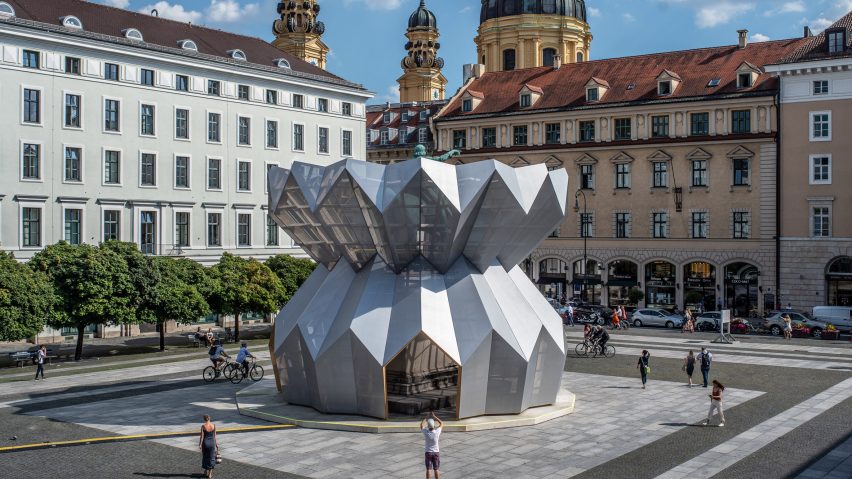
Studio Morison wraps statue of Maximilian I in Munich plaza with origami-like pavilion
Studio Morison has installed a multifaceted mesh-covered pavilion around a statue of Maximilian I in the centre of Munich, to raise awareness for the city's homeless and impoverished.
Named "I Will Be With You, Whatever", the installation was designed by British artists Heather and Ivan Morison of Studio Morison and engineered by Artura Design and Engineering.
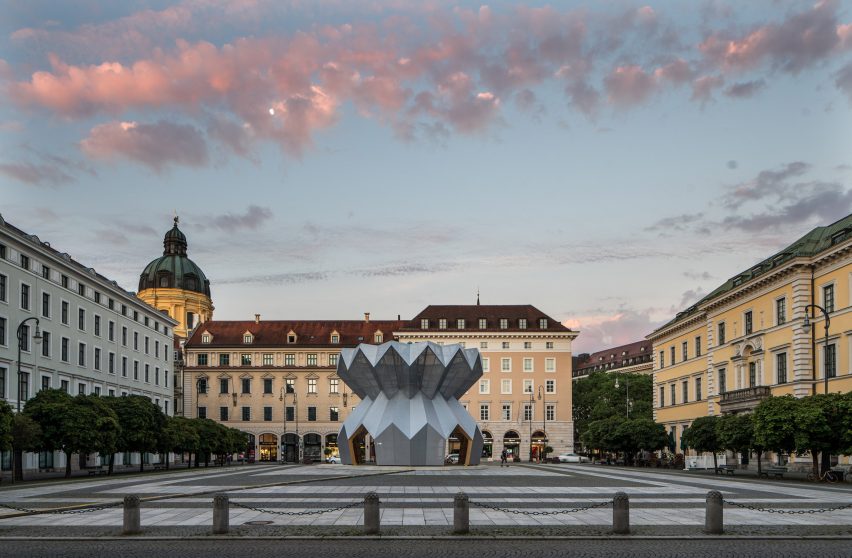
The sculpture, which is on show in the city's Wittelsbacherplatz until October 13, has a refined origami-like form based on a simple rectangle, folded into a complex zig-zagging shape.
With four house-shaped entrances, the nine-metre-high hollow sculpture encircles the equestrian statue of Holy Roman Emperor Maximilian I, which sits in the centre of the square. Almost entirely obscured by the structure, only the head and raised hand of the rider protrude.
The bulk of the statue is either concealed or revealed depending on the light conditions, but illumination at night ensures that Maximilian I is visible inside the pavilion from a distance.
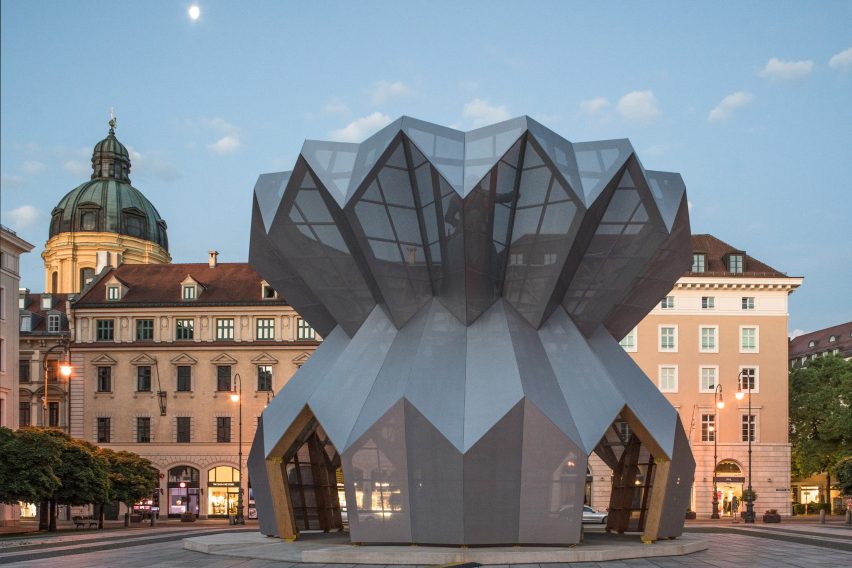
"With its four entrances the sculpture invites entry and exploration," explained Ivan Morison. "It thereby follows the historical function of pavilions."
"While they traditionally played an important role in the creation of squares, parks and gardens as places of gathering, they matter only very rarely in contemporary city design. I Will Be With You, Whatever transforms a public space where usually very few people come to meet, gather or rest."
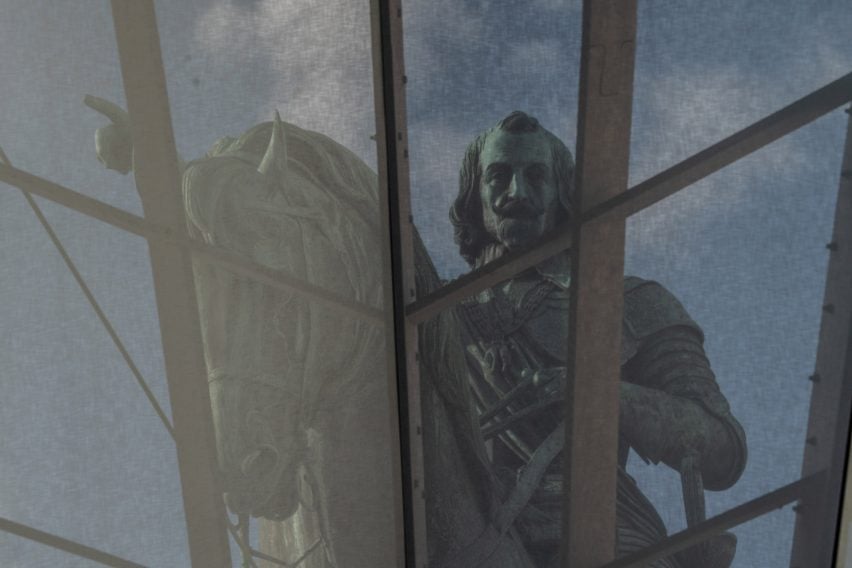
The installation was created as part of the 25th birthday celebration for Munich street magazine BISS.
Similar to the UK's Big Issue, BISS is sold by citizens in social difficulties in order to provide them with a legitimate income. The sculpture is intended as a gift from BISS to the people of Munich to thank them for 25 years of support.
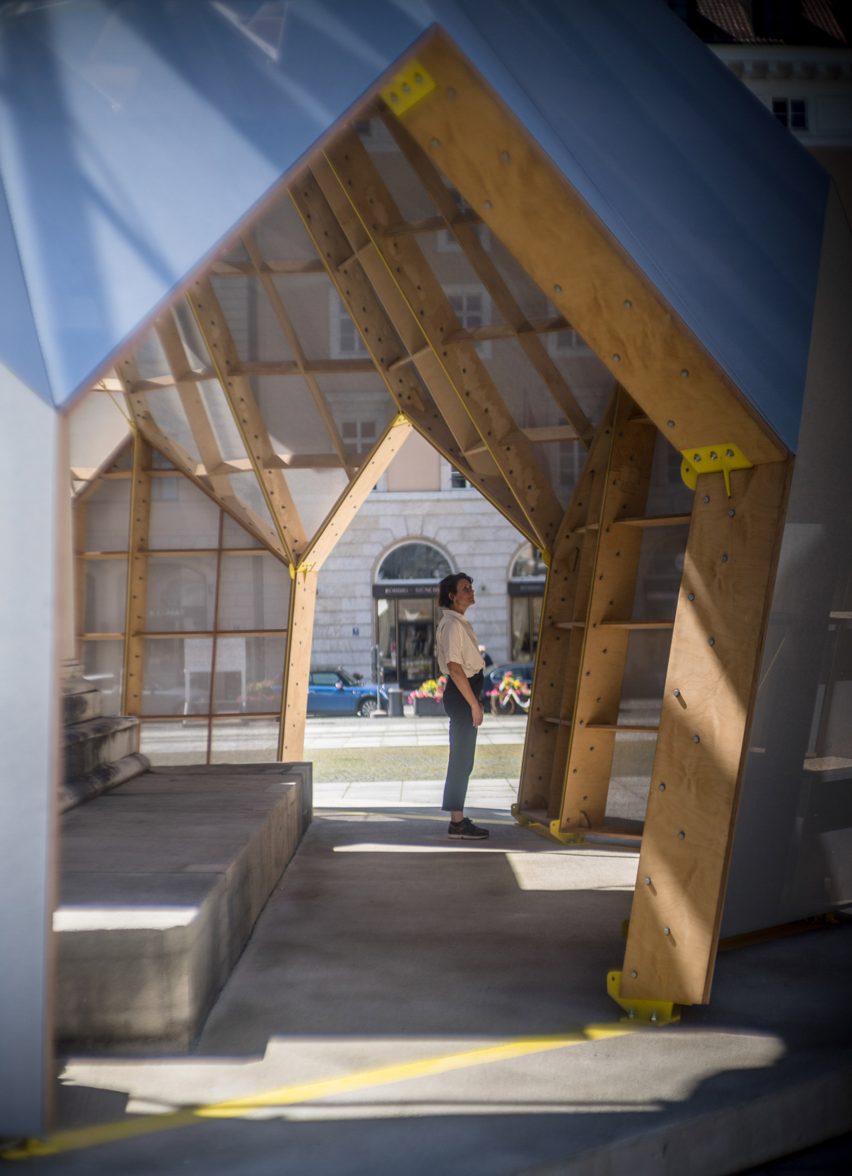
BISS have put together a programme of events that will invite visitors to the plaza to sing, listen, see, debate, play, move and celebrate together. The studio's imposing sculpture is intended as a beacon for BISS while its central location encourages the public to take a position regarding poverty.
Caroline Fuchs, curator of the BISS birthday celebration, added that the partial concealing of Maximilian I was a metaphor for how different people can be invisible in the public sphere.
"This play with the visibility and invisibility of the statue is aimed at our attentiveness in public," said Fuchs. "The participation of people, who are not living in the centre of our society, can depend on their visibility in the public sphere. People can be excluded by invisible boundaries, thresholds or obstacles.
"The partial veiling of Maximilian I in this sense not only calls attention to the statue itself but also to our own perception of every single person," continued Fuchs.
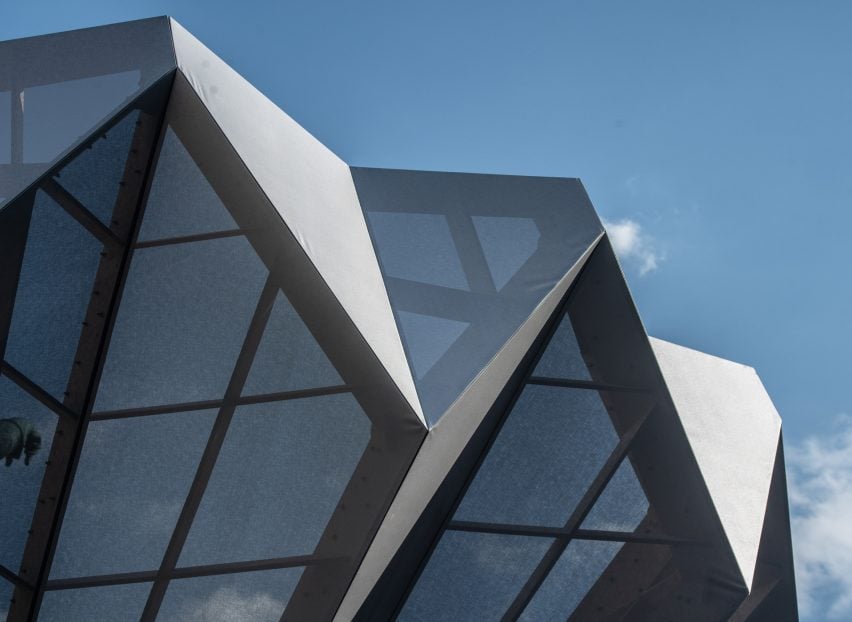
"This work, and its title, signifies supporting poor, ill and homeless people and helping them to overcome severe life crises," added Karin Lohr, BISS chief executive. "Poor people will always remind us through their presence that an equitable society must create the basis of existence for all people."
The installation is made from CNC-cut engineered ply frames, clad in a silver knit super-mesh and held between a yellow steel skeleton.
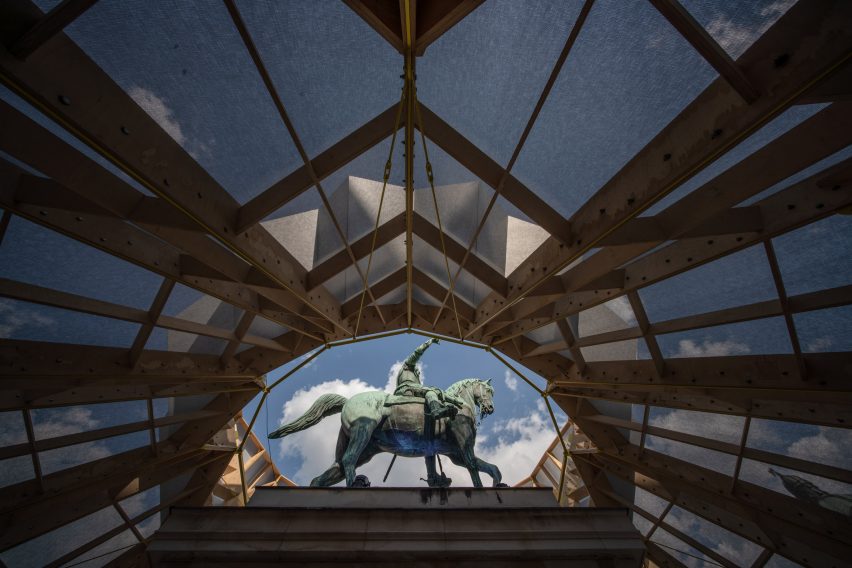
Ivan Morison and Heather Peak Morison set up Studio Morison in 2003 to create work that blurs the boundaries between art, architecture and theatre.
Previously they have erected a pink pavilion shaped like an origami pineapple in the centre of the 18th-century walled garden of the Berrington Hall country estate, and a yellow PVC pavilion that provided visitors to a Dutch art festival with the chance to sleep in one of the darkest places in the Netherlands.
Photography is by Rainer Viertlböck.
Project credits:
Concept: Heather and Ivan Morison
Commissioners: BISS
Design and production: Studio Morison
Engineering: Artura
Fabrication/installation: Xaver Lutzenberger GmbH & Co
Light concept: Ingo Maurer GmbH
Lighting technical support: Osram